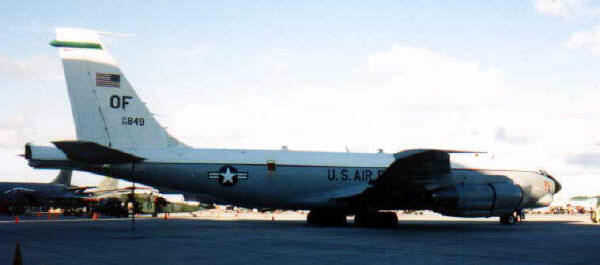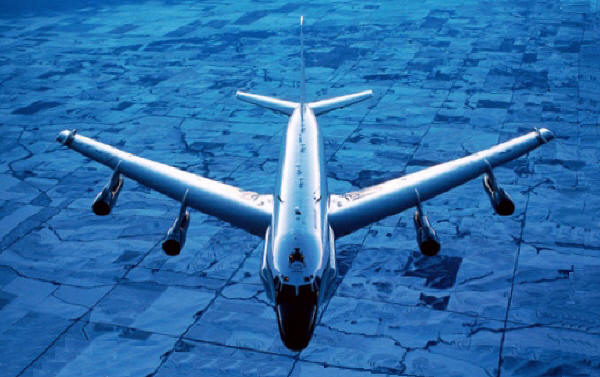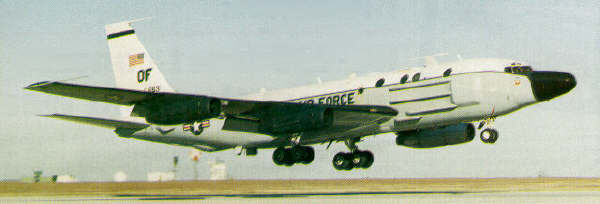|
|
| In
1960, the Strategic Air Command modified C-135 aircraft to house
its Airborne Command Posts, known as "Looking Glass." They
were assigned to the 55th Strategic Reconnaissance Wing, which
operated out of Offutt AFB. The idea was good that the idea
of flying command posts has since been expanded into other areas
of intelligence and operations. Today there are several
RC-135 command aircraft. All are assigned to Air Combat
Command and are operated by the 55th Wing out of Offutt Air Force
Base.
|
|
 |
RC-135U 'Combat Sent'
Two aircraft are designated RC-135U "Combat Sent"
and are characterized by cheek fairings and additional fairings
in the chin, boomer, wingtip, tail cone and fin-top positions.
Until 1991 they were fitted with "towel rail" antennas
above the cheek fairings, but these have been removed. The
RC-135Us are believed to have special purposes within the SIGINT
fleet, and may also be used to trial new equipment. |
|
 |
RC-135V/W 'Rivet Joint'
Eight aircraft are designated RC-135V "Rivet Joint,"
Six are the essentially similar to the RC-135W variant. These are
the workhorses of the SIGINT fleet and are distinguished by
having extended "thimble" noses and large plate
aerials under the center-section. External differences between
the two variants are restricted to a lengthened cheek fairing on
the W-model, which also lacks auxiliary air intakes on its
engine pods.
The aircraft is an extensively
modified C-135. The Rivet Joint's modifications are primarily
related to its on-board sensor suite, which allows the mission
crew to detect, identify and locate signals throughout the
electromagnetic spectrum. The mission crew can then forward
gathered information in a variety of formats to a wide range of
consumers via Rivet Joint's extensive communications suite.
The interior seats 32 people, including the cockpit crew,
electronic warfare officers, intelligence operators and in-flight
maintenance technicians.
|
|
 |
RC-135S 'Cobra Ball'
An altogether more specialized role is
undertaken by three RC-135S "Cobra Ball"
aircraft which normally operate from Shemya Island, Alaska. In
addition to "thimble" noses, electronic receivers
mounted in cheek fairings and a teardrop-shaped fairing on the
aft fuselage, these also have large circular windows in the
fuselage for the photography of foreign ballistic-missile tests
at long range. The intelligence equipment includes multiple
infrared telescopes and is known as the Real Time Optical System
(RTOS). These aircraft allow the U.S. to monitor every reentry
vehicle flown from Russian test ranges, to determine the
capabilities of each Russian missile, new or old.
|
|
|
|
